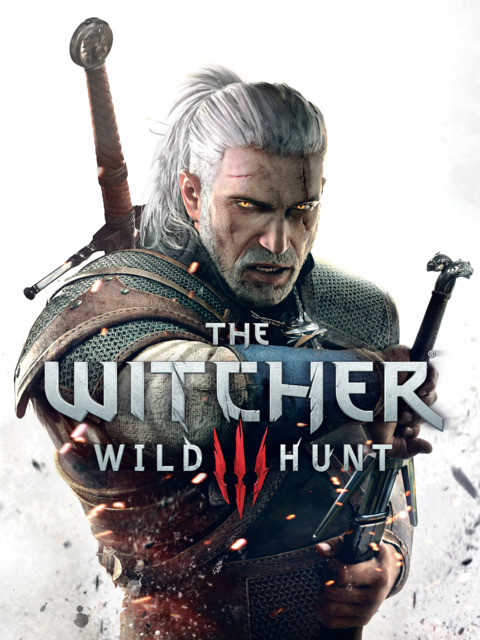I'm wondering about the necessity of hurting Pricilla to start a serial killer questline. I'm going to come at this from three analytical angles: is it additive to the lore, to the game systems, and/or to the representation and treatment of female characters? As you'll see, I'm going to judge whether the first two justify the last one.
Lore
I played the end of the quest twice because the character entry revealed the real killer when I screwed up the first time and I wanted to see the more complex ending. In terms of lore and world building, this quest adds greater understanding of the rather advanced medicine in this world, some insight into academia, the bigotry and brutality of the Eternal Fire, and our first long form encounter with a higher vampire.
Game systems
The quest relies heavily on body autopsy and Witcher senses sleuthing, with just two potential battles. The autopsies are gross but do subtly guide the player to possible culprits. There are some complex dialogue trees and failure of the quest is very possible. I like that it ultimately rewards the player for cool headedness and thorough investigation. Feels very LA Noire.
Treatment of women
So, this quest is not run of the mill. It adds some interesting medical lore and solidifies the E.F. folks as sadistic misogynistic pricks. It dives deep into dialogue and investigation mechanics. That's all well and good.
It's all built around the attack on Pricilla, though. In the end (and I don't know if we get more about this later), it is clear that she will be able to speak and maybe, ("In time" Dandelion says), sing again. They'll perform together with her on lute and him singing.
There's a beautiful introductory scene of Pricilla singing. It's clear that she holds great power in creativity and music. She'll still be able to compose and think, but perhaps not perform in voice.
Now, the writers have developed a character with multiple talents here, so she is at least not completely sidelined, but this quest chooses to hurt and disable her to raise the stakes.
I have to wonder if that's a justified choice. What I loved about Cabaret at the start of the quest is that it is so low key and positive. It's about Dandelion settling down and Pricilla liking him for his growing maturity and Geralt helping a friend find his dream. There's a potential for a moment of pure levity in the game, which could be nice.
By transitioning into the depravity of a religious fundamentalist and his murders through attacking Pricilla for blaspheming on stage, the argument becomes something about how the world is too fucked up for any simple happiness to occur. Moreover, it argues (as the game does repeatedly) that bad people want to harm women to shame them for their actions.
The overarching narrative of misogyny is bad, look at the psychos who are misogynists--that's good. But I disagree with severely limiting an interesting vivacious character to make a point that was already clear in the game.
Unjustified Violence
See, symbolically, rending the vocal chords of a woman and beating her black and blue clearly triggers feelings about real-life abuse and silencing of women. It's an essentially misogynistic act, and both the sadistic priest and the fundamentalist vampire are depicted as misogynistic in dialogue and action. There is no argument in which the game is not directly including misogyny.
The question is does that teach us anything about the world or the characters we didn't already know? Is it additive or subtractive? I feel like it's subtractive. When a guy came into Dandelion's new cabaret and said Pricilla had been attacked, I felt angry at the writers--just let some happiness exist! And while I understand that when this thing happens to a known character the drive to find the person (and kill him for Dandelion) is amplified, it feels cheap and unnecessary to me.
In the noon and nightwraiths, in the story of Anna Strenger, in the potential torture of Triss, in whoreson's hideout, in plenty of places violence against women is shown to be a clear evil that breeds evil in the world. There's an indulgence in it that disturbs me. Later in the quest you find the last dead victim, a woman who burned the religious books in protest, and she's naked, posed on a bed, with ropes holding her up. Clearly the vampire is connecting her sin to her sexuality. It's a deeply disturbing set up and I chose to run out of there rather than investigate all the glowy things. A woman is also found topless, struggling, bound and gagged with a hot poker at her throat, in need of saving. The male victims, meanwhile, are brutalized but their sexuality is not involved.
When choosing to hurt women in a story, I think it's good to consider if that's necessary and additive. In this case, the lore we get could be achieved in many ways without hurting Pricilla. We basically already knew the religious nuttery and the medical world could have been entered in other ways. Meanwhile, the dialogue and investigation mechanics were actually well fleshed out in this quest before the violence started.
The violent turn feels more like padding with violence and monsters and well-worn themes than it does a thoughtful decision. Pricilla becoming a disabled victim to justify all of this was a mistaken choice.
Well, that's what I think. What did you all think of this quest? Let's try to keep it to just this quest so as to avoid a cluster fuck around the game's depiction of women as a whole.

Log in to comment